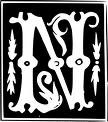"What happens to a man when
He spills his heart on a page
And he watches words flow away
Then his feelings lay on a page alone.
There, waiting for someone who cares to read them,
To open their eyes to see them,
To see if they can make his thoughts their own."
"The way we see the world is changing. The way we see ourselves is also changing." (q, h/t) Most of us are used to seeing ourselves as isolated, solitary beings. I may be able to physically push you, but we don't generally believe that I can intrude upon the essence of you. However, as the data continues to paint a picture of mind's effect upon perceivable matter, will we be able to hold on to that perception of solitude? As we see how the mind manifests itself in what we experience as reality, will we also be forced to question the nature of other individuals? How can our minds affect reality without also affecting the other individuals who inhabit that reality?
"Distributed cognition is a branch of cognitive science that proposes that human knowledge and cognition are not confined to the individual. Instead, it is distributed by placing memories, facts, or knowledge on the objects, individuals, and tools in our environment." (q)
I am interested in a similar idea - that of a distributed self. The idea being that the memories, facts and knowledge held by other individuals all contribute to one particular individual's actions and sense of self. This would be true for each 'self', and such an idea, when pushed to its logical conclusion, would suggest that each of us are, at least in part, manifestations of a collective consciousness, extended mind, or some other unified whole. And of course, in keeping with the data that give rise to these thoughts and that speak of nonlocal relationships between mind and matter, such influences upon an individual's actions and sense of self would be of a similar nature, meaning that they occur in the absence of verbal or other local feedback from the other individuals. I would also suggest that such changes in one's own sense of self are noticeable to an individual who is using an appropriately developed introspective ability.
The idea of a collective consciousness (or unconscious) is not new to science. Science has even found an experimental illustration that resembles the idea of a collective/hive mind. Take a look at The Jelly Bean Experiment. (h/t) Picture each person who participated in this experiment as a node in an interconnected web where the connections between them are information related to the guessing experiment. Not explicit I-told-you-what-I-guessed connections, but exclusionary forces say that Person A's guess determines Person B's guess in a non-local way that is governed by the observations and consequences of the group's collective behavior. And each individual's action strengthens the output of the collective.
Here is another analogous image that corresponds quite well to the distributed self model that's slowly building itself in my mind. Picture one 'self' on each side of the pegboard. An 'action' on one side of the pegboard shows up as a change in the pegs on the other side of the board. Is the individual 'self' simply the configuration of the pegs on each side of the board, or is it the configuration of the pegs plus something else? That's an open question for me, as far as this particular analogy goes, though I'd like to think that it is a question that can be answered once we better understand the recursive nature of memory within the stream of consciousness.
Tuesday, August 23, 2011
Subscribe to:
Post Comments (Atom)


No comments:
Post a Comment